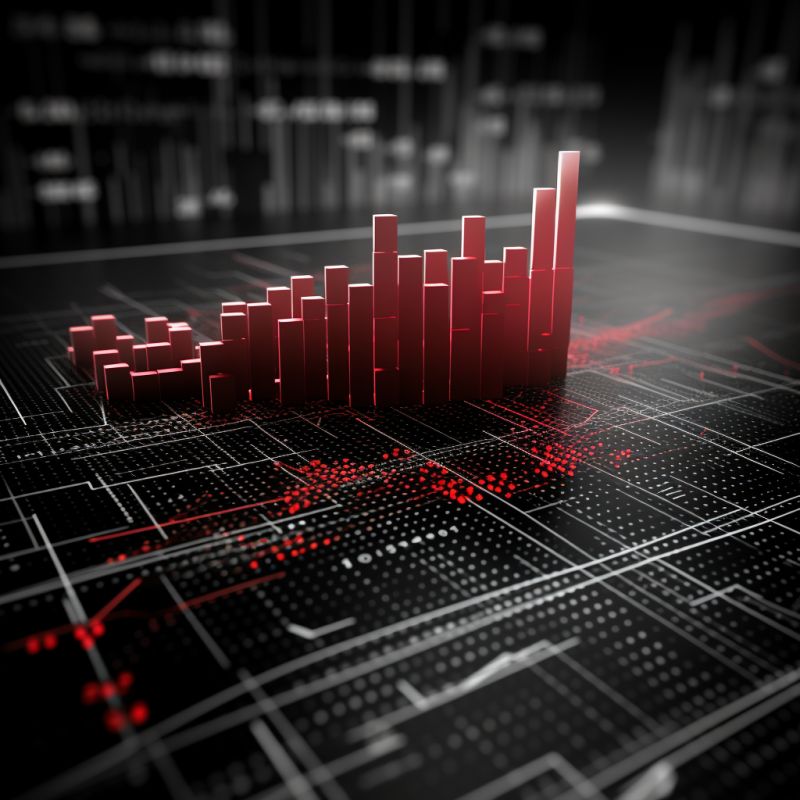Using Data Analytics To Enhance Transparency in Government Procurement

Transparency and accountability are the cornerstones of effective governance. In the realm of public procurement, these are critical to ensure fair competition, prevent corruption, and optimise resource allocation. In recent years, the integration of data analytics has emerged as a key way for governments to analyse their procurement processes.

The Promise of Data Analytics
Data analytics, the process of examining and interpreting vast datasets to extract meaningful insights, has the potential to transform government procurement. By leveraging advanced analytics techniques, governments can unlock hidden patterns, identify irregularities, and ensure that procurement decisions are grounded in objective analysis.
- Detection of Anomalies: Data analytics can flag anomalies and deviations from procurement norms. By comparing historical data and identifying outliers, governments can pinpoint potential cases of fraud, collusion, or overpricing. This approach enhances transparency by exposing discrepancies that may otherwise go unnoticed.
- Real-time Monitoring: With data analytics, governments can monitor procurement processes in real time. This capability allows for immediate identification of any deviations from standard procedures, and enabling corrective actions.
- Supplier Evaluation: Data-driven supplier evaluation promotes transparency by assessing suppliers based on objective criteria. By analysing performance metrics, delivery times, and quality indicators, governments can ensure that contracts are awarded to the most qualified and competitive suppliers.
Promoting Fair Competition and Inclusivity
Data analytics plays a crucial role in promoting fair competition and inclusivity in government procurement, two aspects that are integral to transparency.
- Diverse Supplier Participation: Analytics can help governments monitor the participation of diverse suppliers, including SMEs. By tracking procurement trends and supplier statistics, governments can ensure that procurement opportunities are accessible to a wide range of stakeholders.
- Bid Evaluation: Data analytics can streamline the bid evaluation process by assessing factors such as cost, quality, and technical capability. This standardised approach minimises subjectivity, ensuring that contract awards are based on objective criteria and fostering a level playing field for all bidders.
Enhancing Public Trust
Transparency in government procurement is closely linked to public trust. When citizens are confident that their tax dollars are being spent judiciously and fairly, trust in the government’s ability to serve their interests is strengthened.
- Open Data Initiatives: Governments can bolster transparency by implementing open data initiatives that make procurement data accessible to the public. Analysed data, presented in user-friendly formats, allows citizens to scrutinise procurement processes and hold government agencies accountable for their spending decisions.
- Fraud Prevention: By using data analytics to detect and prevent fraudulent activities, governments can reassure citizens that their resources are safeguarded. Detecting instances of bid rigging, price fixing, or other fraudulent practices reinforces the message that the government is committed to ethical and transparent procurement.
By harnessing the power of data-driven insights, governments can detect irregularities, promote fair competition, and enhance public trust. As governments increasingly embrace data analytics, the landscape of public procurement is hopefully progressing toward a place where every procurement decision is grounded in objective analysis and public interest. This shift holds the potential to reshape governance, ensuring that the allocation of public resources is transparent, efficient.
If you are looking for government procurement data, Spend Network holds data for more than 150 countries, and 700 sources, globally. We take the hard work out of collecting, organising and analysing procurement data at scale.
Our analysis can predict poor performance and bad tendering, and also savings opportunities. We can monitor market efficiency and look for new suppliers to increase competition. Get in touch to find out more.



